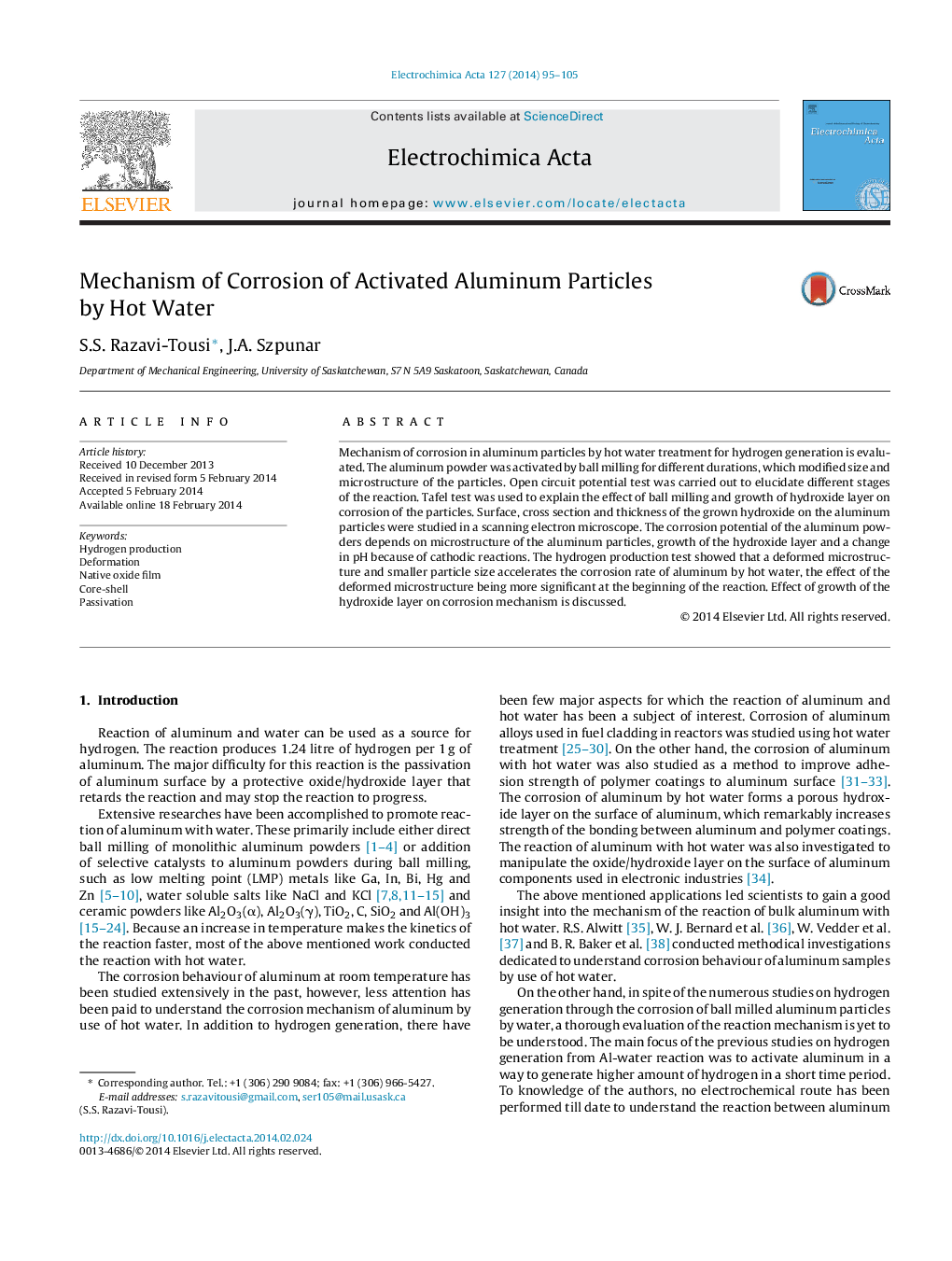| Article ID | Journal | Published Year | Pages | File Type |
|---|---|---|---|---|
| 186137 | Electrochimica Acta | 2014 | 11 Pages |
Mechanism of corrosion in aluminum particles by hot water treatment for hydrogen generation is evaluated. The aluminum powder was activated by ball milling for different durations, which modified size and microstructure of the particles. Open circuit potential test was carried out to elucidate different stages of the reaction. Tafel test was used to explain the effect of ball milling and growth of hydroxide layer on corrosion of the particles. Surface, cross section and thickness of the grown hydroxide on the aluminum particles were studied in a scanning electron microscope. The corrosion potential of the aluminum powders depends on microstructure of the aluminum particles, growth of the hydroxide layer and a change in pH because of cathodic reactions. The hydrogen production test showed that a deformed microstructure and smaller particle size accelerates the corrosion rate of aluminum by hot water, the effect of the deformed microstructure being more significant at the beginning of the reaction. Effect of growth of the hydroxide layer on corrosion mechanism is discussed.
